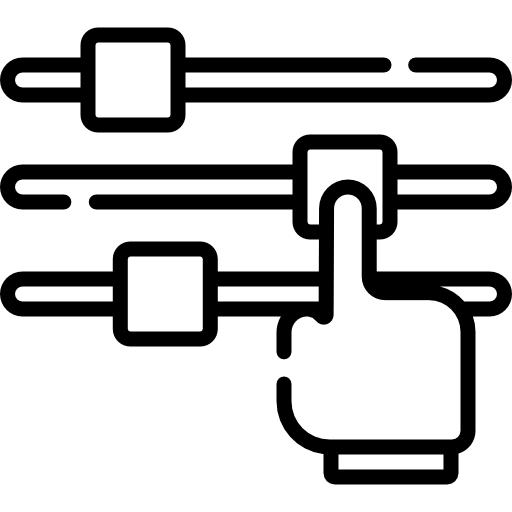
Online OCD-Obsessive Compulsive Disorder Psychiatric Treatment/Therapy in Tucson, AZ
Are you struggling with persistent, intrusive thoughts that lead to repetitive actions? You’re not alone. Obsessive-compulsive disorder (OCD) can significantly impact your daily life and how you feel about different situations. But there’s hope. At Foothills Psychiatric Clinic in Tucson, Arizona, we have dedicated professionals ready to help you regain control.
Simon George, a board-certified psychiatric mental health nurse practitioner, and his compassionate team specialize in diagnosing and treating OCD in Tucson, AZ. They offer personalized care tailored to your specific needs. OCD involves unwanted thoughts and fears that can lead to compulsive behaviors, such as a fear of germs or the need to arrange items in a particular way. We’re here to help you with medication required to manage these challenges and provide online therapy for OCD
Take the first step towards reclaiming your life. Contact us to book an appointment online to learn more about OCD and how we can support you on your journey to wellness. We offer online consultations to best serve local residents in Tucson, AZ.
OCD Common Questions and Answers
What is OCD- Obsessive Compulsive Disorder
The American Psychiatric Association explains that Obsessive-compulsive disorder (OCD) involves persistent, unwanted thoughts, ideas, or sensations (obsessions) that lead individuals to perform repetitive actions (compulsions) to alleviate these thoughts. These compulsions can include behaviors like excessive hand washing, repeated checking, or mental rituals like counting. While OCD may seem harmless at times, these repetitive actions can significantly disrupt daily life and affect social interactions.
If you’re looking for online OCD therapy in Tucson, Arizona, our team at Foothills Psychiatric Clinic is here to help. We understand the challenges of living with OCD and offer effective treatment options to improve your quality of life. Contact us today to learn more about our services and how we can support you on your path to wellness.
OCD Obsessions
Obsessions in OCD are recurrent and persistent thoughts, impulses, or images that cause distressing emotions like anxiety, fear, or disgust. People with OCD often try to alleviate the distress caused by these obsessions through compulsive behaviors. They might also attempt to ignore or suppress these obsessive thoughts by distracting themselves with other activities.
Common obsessional thoughts include:
– Fear of contamination from people or the environment
– Worrying that something is incomplete
– An extreme need for order, symmetry, or precision
– Fear of losing or discarding significant items
Compulsions in OCD
Compulsions are repetitive behaviors or mental activities that individuals feel compelled to perform in response to an obsession. These actions provide temporary relief from the distress caused by obsessions. Compulsions can be directly related to the obsession, like frequent hand washing due to a fear of contamination, or unrelated actions. In severe cases, these behaviors can consume the entire day, making it hard for individuals with OCD to maintain a normal routine.
Compulsive behaviors can look like:
– Excessive hand washing, showering, brushing teeth, etc.
– Over-cleaning household items
– Arranging things in a particular way
– Repeatedly checking locks, switches, appliances, doors, etc.
– Engaging in habits related to numbers, such as counting or repeating actions
– avoiding certain people, places, or situations that cause distress and trigger obsessions and/or compulsions.
While mild OCD can be manageable, severe OCD can significantly impact daily life. If these behaviors start to take over your day, it is recommended to seek help from a psychiatric mental health professional. Foothills Psychiatry in Tucson, Arizona, offers online diagnosis, treatment, therapy, and medication for OCD and related conditions to help you lead a more stress-free life.
OCD Diagnosis & Treatment

How is OCD Diagnosed?
To determine if you have OCD, our psychiatric mental health professionals in Tucson, AZ, conduct comprehensive assessments. They evaluate your thoughts, emotions, feelings, lifestyle habits, current medications, and medical history.
Foothills Psychiatric Clinic in Tucson also offers pharmacogenomic testing to identify which medications are most effective for your mental health needs. Based on the assessment results, we can create a personalized treatment plan for you. For patients with severe OCD, medication may be necessary to help stabilize and manage their thoughts, allowing them to live a healthier life.
How is OCD Treated?
Receiving appropriate treatment for OCD can significantly enhance your quality of life and daily functioning. At Foothills Psychiatric Clinic in Tucson, AZ, our dedicated OCD specialists focus on providing effective medication and treatment options to improve your mental health and support you in living a fulfilling life. The most common treatment methods for OCD include psychotherapy and medications, which help manage behaviors and influence brain function.
1 Psychotherapy (Talk Therapy)
OCD and other mental health conditions can be effectively treated with psychotherapy, also known as talk therapy.
Cognitive Behavioral Therapy (CBT):
CBT, a form of psychotherapy, is particularly helpful for individuals with OCD and related mental disorders. This approach teaches individuals new ways of thinking, behaving, and responding to situations to reduce anxiety and fear.
Exposure therapy– A technique within CBT that helps treat anxiety by having individuals face their fears directly. It encourages confronting avoided activities and sometimes includes relaxation exercises in the treatment plan.
2. Medications
Selective serotonin reuptake inhibitors (SSRIs), which are often used for anxiety and depression, can also be effective in treating OCD. Higher doses are usually required for OCD, and if one SSRI doesn’t work, another might be tried. It typically takes about six to twelve weeks to see the full effect. Mild to moderate OCD can be treated with either CBT or medication, depending on patient preference and other factors. For severe OCD, a combination of CBT and SSRIs is often most effective.
Kindly Note: All medications listed here are for educational and informational uses only. We DO NOT RECOMMEND ANYONE to take these medicines without consulting a psychiatrist or mental health care provider.
3. Lifestyle Changes
In the early stages of OCD, adopting healthy lifestyle habits can help manage symptoms. Changes such as eating nutritious food, getting adequate rest, reducing stress, and keeping organized to-do lists can significantly improve overall health.
Foothills Psychiatric Clinic in Tucson, AZ, offers personalized solutions to help you overcome and treat OCD. We adjust treatment plans to meet your unique needs and goals, providing both online and in-person consultations. Call our office at 480-608-4877 to schedule your appointment.














